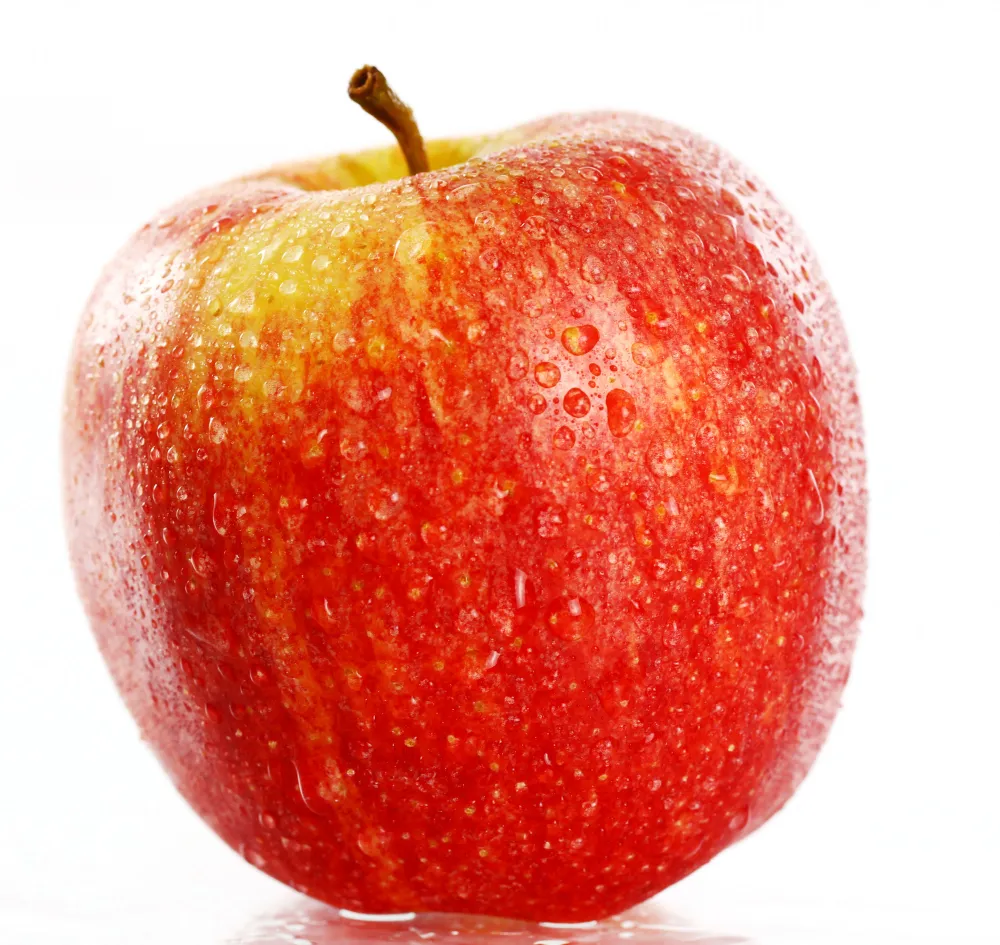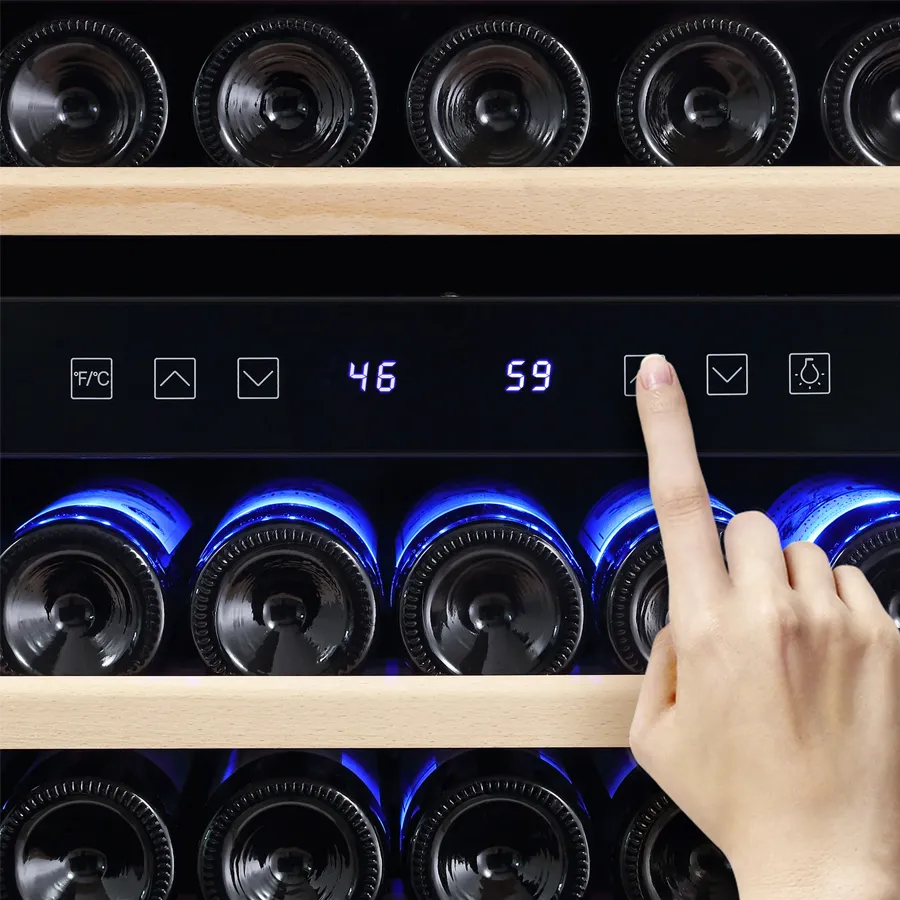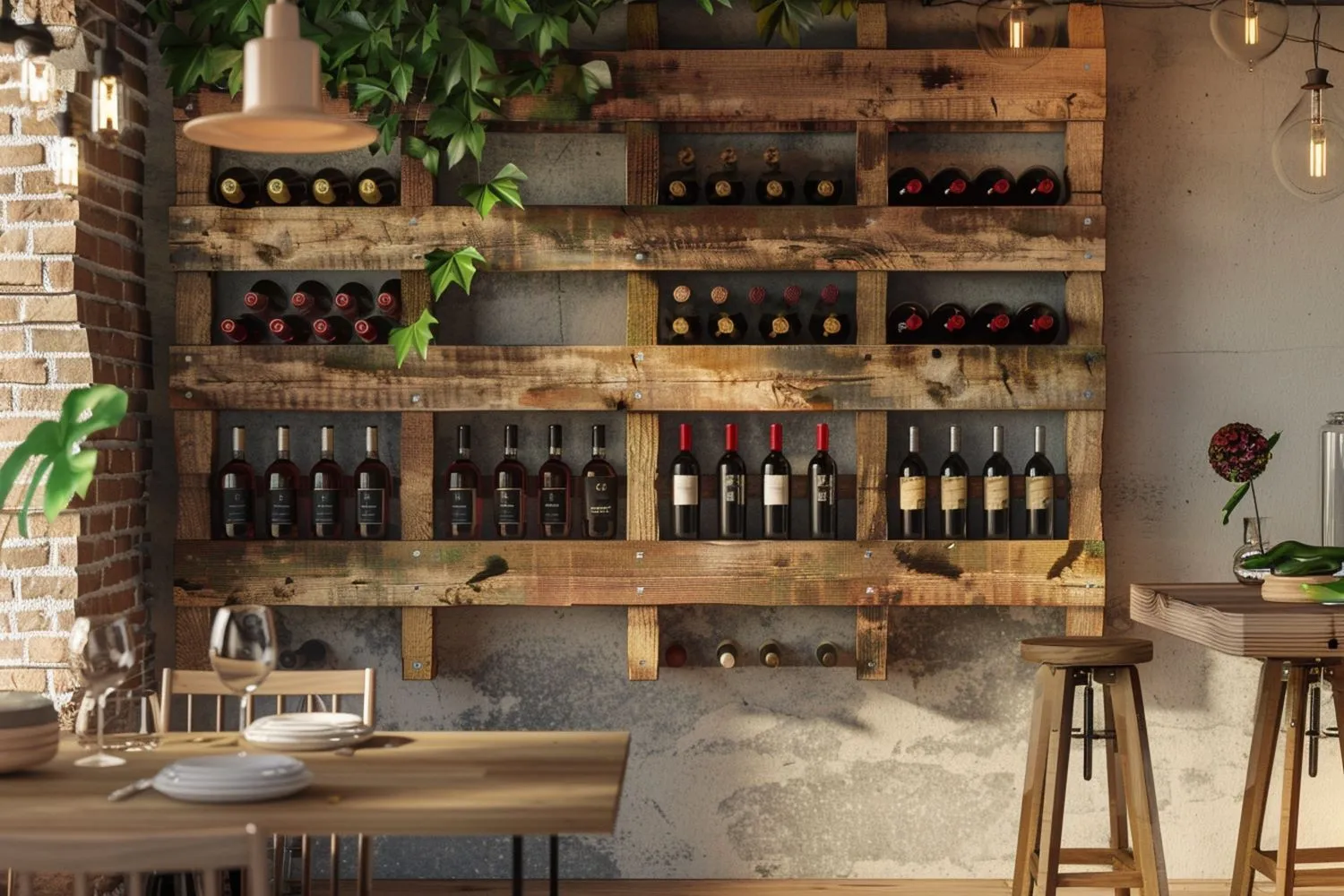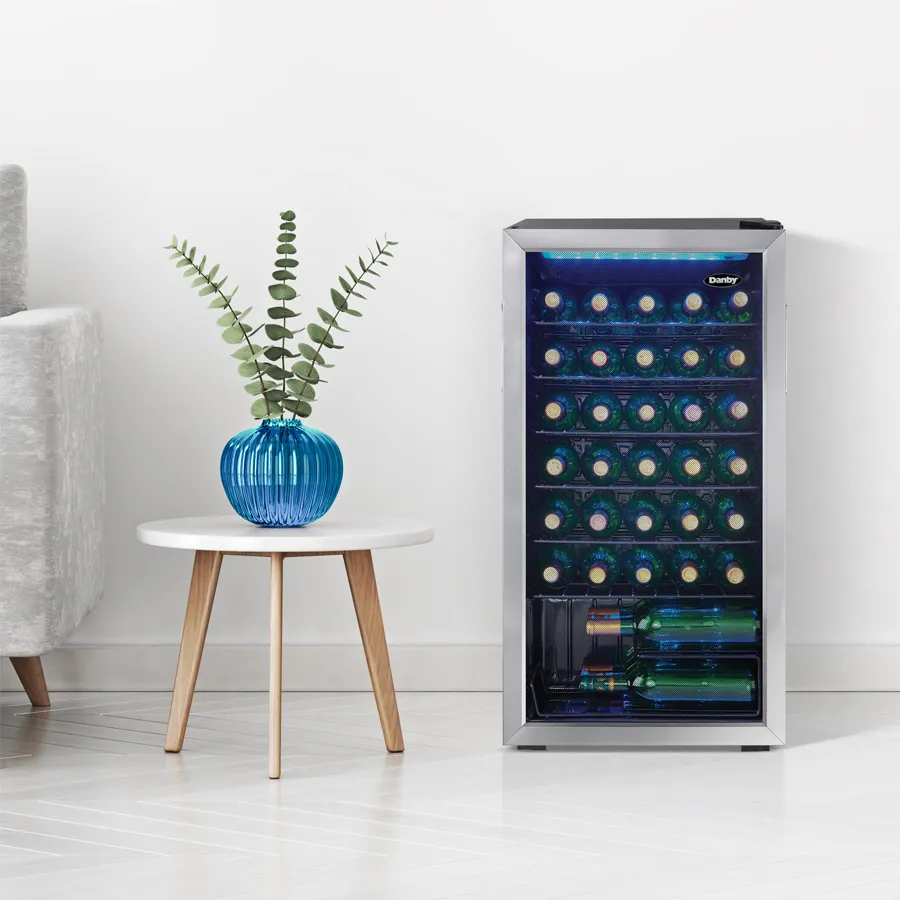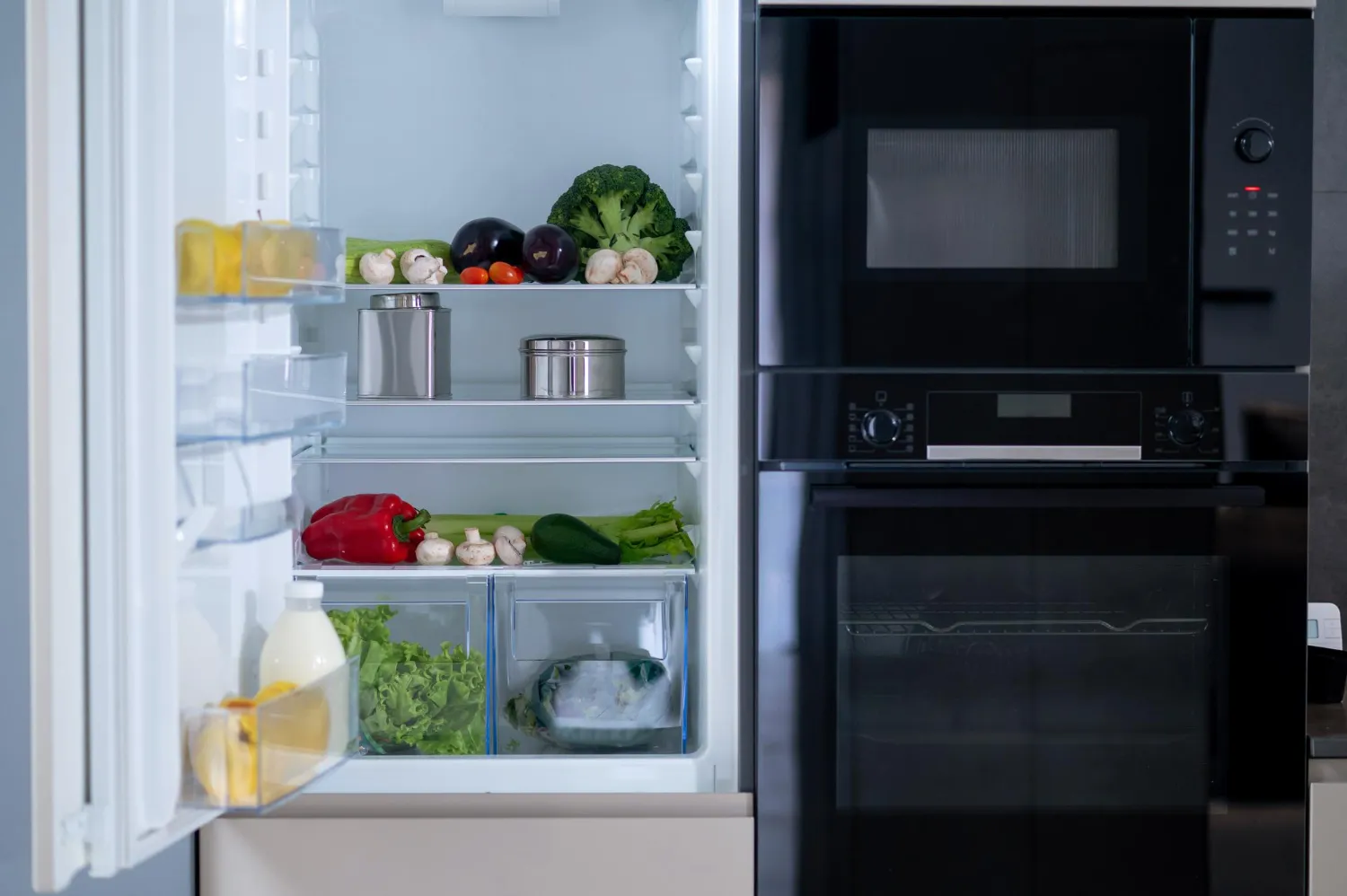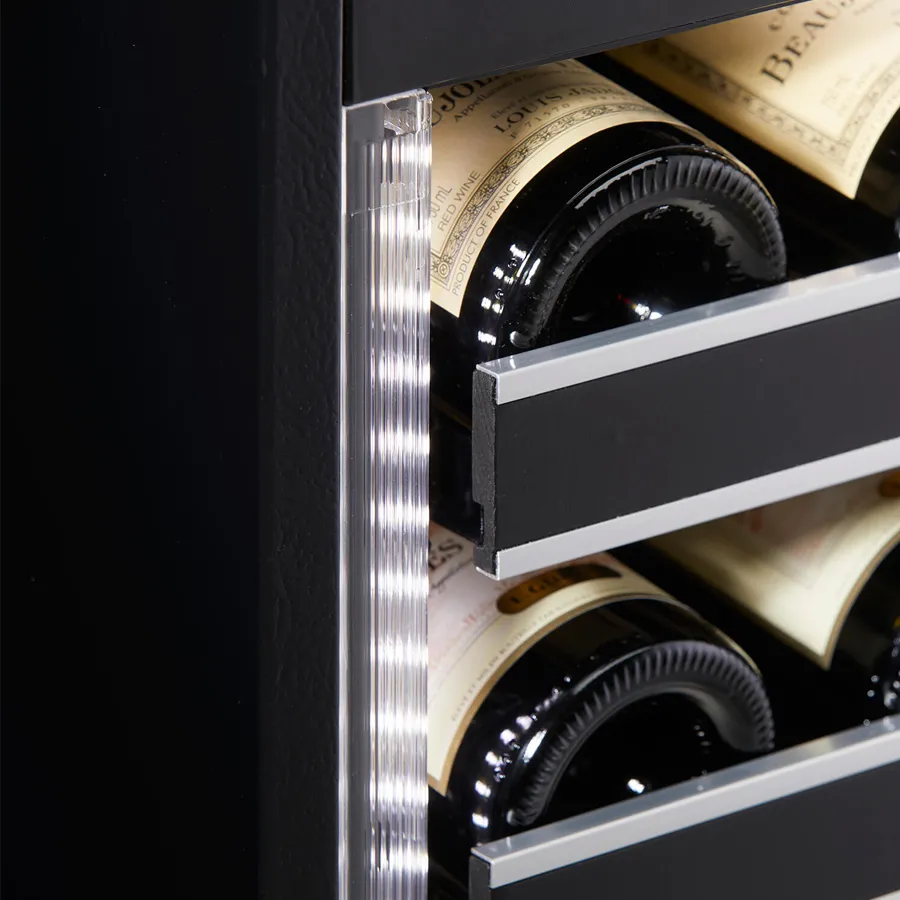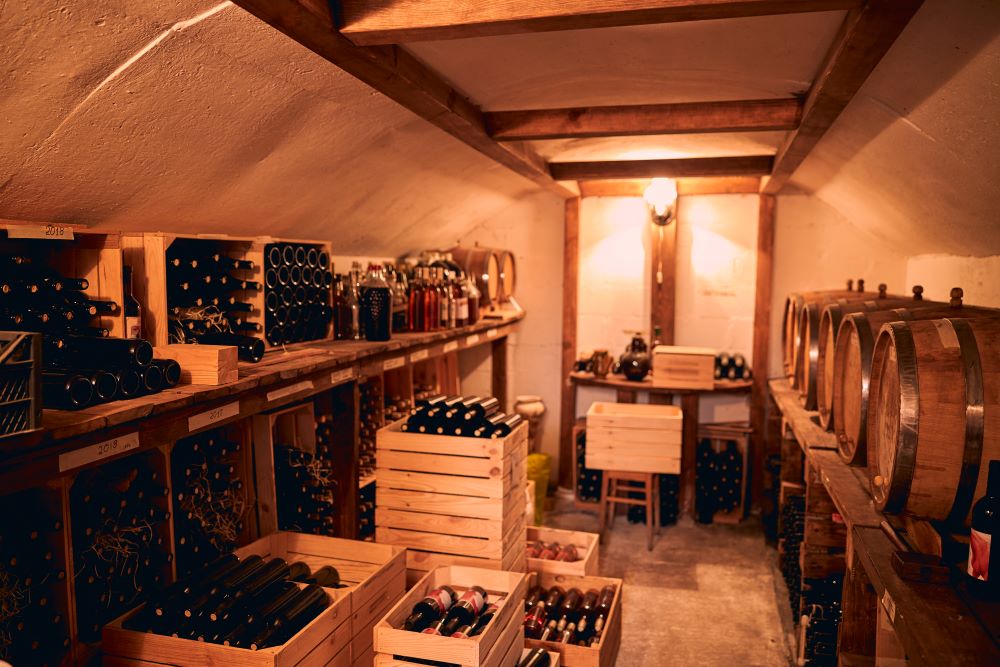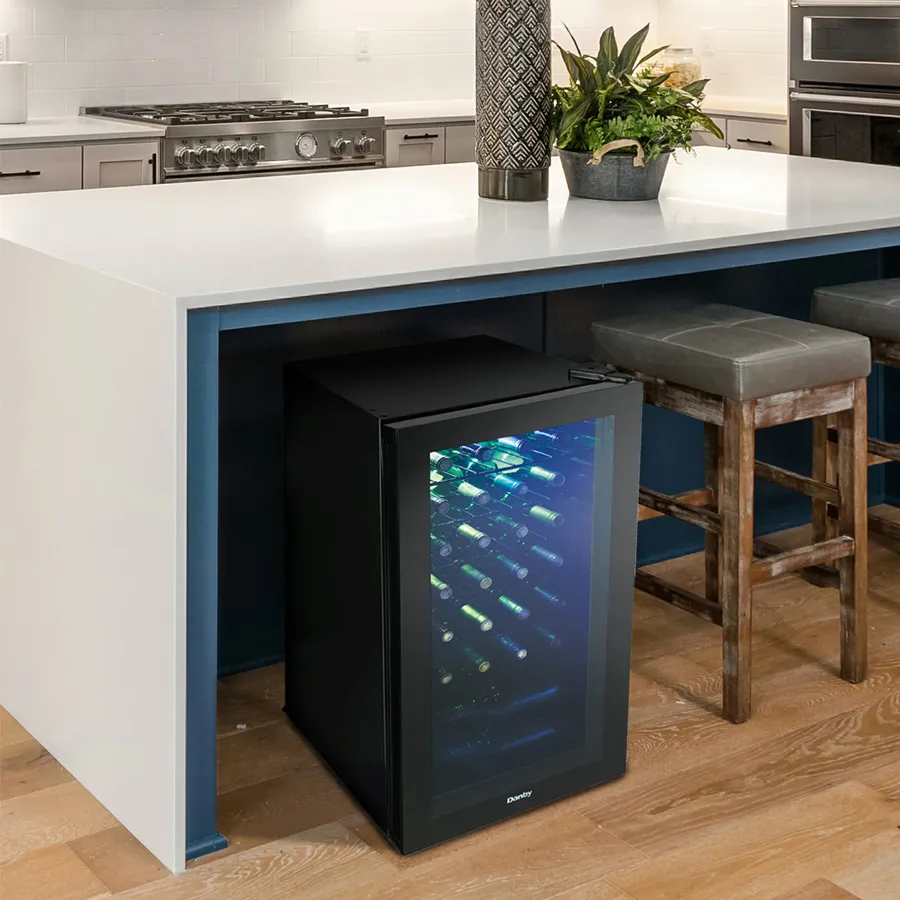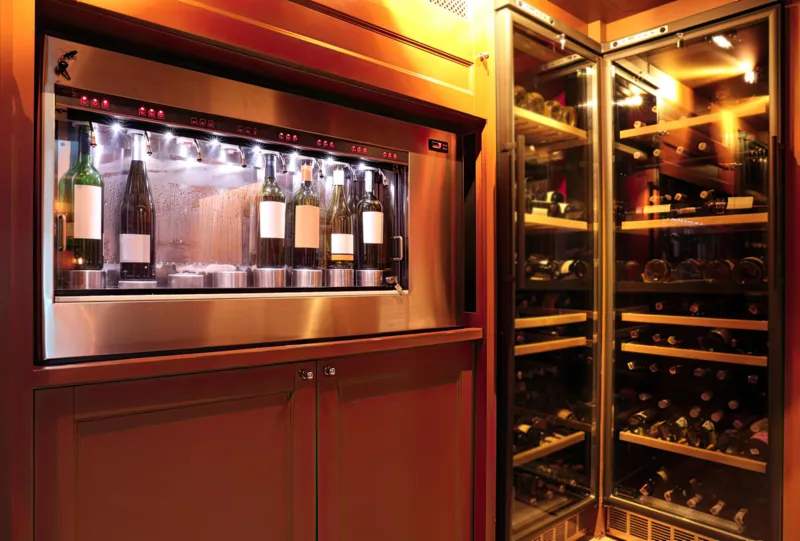Beverage coolers and mini refrigerators serve different purposes when it comes to storing your favorite drinks. Both can do the job of keeping your drinks cold, but there are important differences to bear in mind. In this piece, I’ll discuss the pros and cons of each beverage storage method so that you may make an educated choice.
Beverage Cooler Vs. Mini Fridge
The debate between beverage coolers and mini fridges is a common one, especially when it comes to choosing the right appliance for keeping your drinks and snacks cold. While both serve a similar purpose, there are key differences between the two that can significantly impact your choice.
Design and Purpose
Beverage coolers are built to hold and chill bottled drinks, cans, and bottles of soda, beer, and wine. They typically include transparent front panels or glass doors so you can see and reach your beverages with ease. However, mini-fridges have greater flexibility because they may be used to store not just fresh but also leftover and frozen foods. Shelves and compartments allow for the neat and tidy storage of a variety of objects.
Size and Capacity
The size and capacity of beverage coolers and mini fridges also differ significantly. Beverage coolers are typically more compact and have a smaller capacity, making them ideal for smaller living spaces or for use in entertainment areas. Mini fridges, on the other hand, come in a range of sizes and have larger capacities, offering more storage options for a variety of items. This makes them a better choice if you need to store a larger quantity of food and drinks.
In conclusion, your individual demands and preferences should guide your choice between a beverage cooler and a mini fridge. Mini refrigerators can store a wider variety of products than beverage coolers can, but the former are ideal for keeping drinks cold and close at hand. The quantity and nature of your storage needs will determine the best option for you. Make an educated choice that works for your lifestyle by thinking about the dimensions, storage capacity, and intended function of each item.
Pros and Cons Between Them
Obviously, before deciding on whether to invest in a beverage cooler or a mini fridge, you need to consider the pros and cons of each option. Here, we will outline the advantages and disadvantages of both appliances to help you make an informed choice.
| Pros of a Beverage Cooler | Cons of a Beverage Cooler |
| Designed specifically for beverage storage | Limited storage capacity |
| Compact size and sleek design | May not have adjustable temperature controls |
| Energy efficient | Restricted use for only beverages |
| Optimal temperature control for drinks | Higher cost compared to mini fridges |
| Customizable shelving options | Not suitable for storing perishable items |
Pros of a Beverage Cooler
If you are someone who enjoys having a variety of beverages readily accessible, a beverage cooler is a practical choice. It is specifically designed to store drinks at the ideal temperature, ensuring that they are always refreshing and ready to enjoy.
Cons of a Beverage Cooler
However, the limited storage capacity of a beverage cooler may not be suitable for those who require additional space for food items or other perishables. Additionally, the higher cost compared to mini fridges may be a deterrent for some individuals.
Pros of a Mini Fridge
On the other hand, a mini fridge offers more versatility in terms of storage, allowing you to keep both beverages and food items cool. This makes it a suitable option for dorm rooms, offices, or small living spaces where you need a compact refrigeration solution.
Cons of a Mini Fridge
However, the downside of a mini fridge is that it may not provide the same optimal temperature control for beverages as a dedicated beverage cooler. Additionally, the use of a mini fridge for perishable items may impact the overall cooling efficiency.
Factors to Consider When Choosing Between a Beverage Cooler and a Mini Fridge
Now that you understand the differences between a beverage cooler and a mini fridge, it’s important to consider the factors that will help you make the right choice for your specific needs. Here are some key factors to consider:
- Your Cooling Needs
- Available Space
- Energy Efficiency
The decision to choose between a beverage cooler and a mini fridge should be based on careful consideration of these factors to ensure that you are making the best choice for your specific needs.
Your Cooling Needs
One of the most crucial considerations between a beverage cooler and a mini fridge is the amount of cooling space you’ll need. A beverage cooler is the best choice if you only need to store and chill drinks. However, a compact fridge may be more practical if you need a multipurpose appliance that can also store food products.
Available Space
Another crucial factor to consider when choosing between a beverage cooler and a mini fridge is the available space in your home or office. Beverage coolers are typically more compact and designed to fit in smaller, more confined spaces. If you have limited space, a beverage cooler may be the ideal choice for you. However, if you require more storage capacity and have ample space, then a mini fridge may be the better option.
Energy Efficiency
Energy efficiency is a crucial factor to think about when contrasting beverage coolers with mini fridges. Beverage coolers are more energy efficient than mini fridges because they can function at lower temperatures. A beverage cooler could be the better alternative if you’re concerned about your carbon footprint. When purchasing a new appliance, it’s vital to think about how its energy efficiency may affect your monthly electric bills and your footprint on the environment.
Although both a mini fridge and a beverage cooler can keep your drinks cold, there are some crucial distinctions between the two that are worth keeping in mind. The primary difference is in storage capacity and temperature range. A micro fridge has a wider temperature range and can also be used to store food, whereas a beverage cooler is designed primarily for keeping drinks cold, often between 32 and 50 degrees Fahrenheit. Mini-fridges are more flexible than beverage coolers because of their removable shelves and many storage compartments. Which appliance is best for your needs will depend on how and what you intend to use it for, so keep that in mind as you weigh your options.










